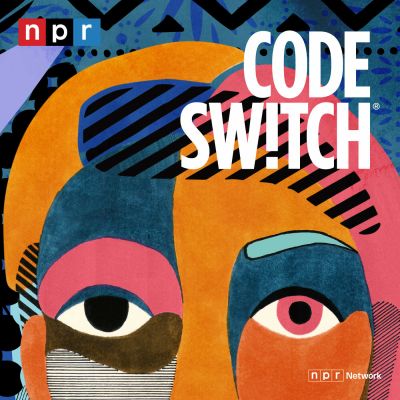What's CODE SWITCH? It's the fearless conversations about race that you've been waiting for. Hosted by journalists of color, our podcast tackles the subject of race with empathy and humor. We explore how race affects every part of society — from politics and pop culture to history, food and everything in between. This podcast makes all of us part of the conversation — because we're all part of the story. Code Switch was named Apple Podcasts' first-ever Show of the Year in 2020.Want to level up your Code Switch game? Try Code Switch Plus. Your subscription supports the show and unlocks a sponsor-free feed. Learn more at plus.npr.org/codeswitch
https://www.npr.org/podcasts/510312/codeswitch
Gesamtlänge aller Episoden: 18 days 41 minutes
Simple Solutions
Sometimes, the best solutions to complex problems are simple. But simple doesn't always mean easy. This hour, TED speakers describe the innovation and hard work that goes into achieving simplicity. Guests include designer Mileha Soneji, chef Sam Kass, sleep researcher Wendy Troxel, public health advocate Myriam Sidibe, and engineer Amos Winter.
Live From Chicago...It's Code Switch!
Hosts Shereen and Gene take on Chi-City with help from Chicago-natives Eve Ewing and Natalie Y. Moore, plus Code Switch's play cousin, Hari Kondabolu. Ewing opens the show with a poem from her new collection, Electric Arches. Kondabolu talks about his upcoming documentary, "The Problem with Apu." And Moore brings her Chicago-expertise to some tough questions from our listeners.
episode 10: Los niños perdidos - Parte 1
En noviembre de 1985, una erupción volcánica arrasó con el pueblo colombiano de Armero y lo enterró debajo de toneladas de rocas y lodo. Entre los sobrevivientes había varios niños pero, en el caos, fueron trasladados a otros lugares y nunca se volvió a saber de ellos. Tres décadas han pasado y todavía queda una pregunta: ¿Qué pasó con los niños desaparecidos?
How Art Changes Us
Art can evoke powerful feelings. But can it do more? This hour, TED speakers share ideas on the transformative nature of art and its ability to shape the way we see ourselves and the world around us. Guests include painter and sculptor Titus Kaphar, painters Dre Urhahn and eL Seed, textile artist Magda Sayeg, and conductor Benjamin Zander.
Reflections On A Year At Ron Brown High
We spent the past three episodes looking at the first year of a high school for black boys in Washington, D.C. Now, we're taking a look back on our reporting. What does it mean for a school like Ron Brown to exist — and what does that say about our society?
episode 9: El fotógrafo
Víctor Basterra estaba en una prisión clandestina del gobierno argentino cuando se le dio una opción: trabajar o morir. Víctor optó por trabajar, y decidió que un día tendría su venganza.
Maslow's Human Needs
Humans need food, sleep, safety, love, purpose. Psychologist Abraham Maslow ordered our needs into a hierarchy. This week, TED speakers explore that spectrum of need, from primal to profound. Guests include psychologist Margie Lachman, neuroscientist Russell Foster, computer security expert Bruce Schneier, journalist Sebastian Junger, activist Caroline Casey, and psychologist Mihaly Csikszentmihalyi. (Original broadcast date: April 17, 2015)
To Fail Or Not To Fail: The Fierce Debate Over High Standards
With 40 percent of its students at risk of failing, one radical new high school in Washington, D.C. wrestles with whether to lower its own high expectations.
episode 8: Los bomberos
En Perú, un país donde las instituciones públicas son sospechosas -y a menudo culpables- de corrupción, los bomberos están entre los servidores públicos más valorados. Pero no cobran un sueldo y sólo reciben beneficios si pierden la vida o queda inválidos. ¿Por qué los peruanos prefieren que los rescate un héroe sin sueldo en vez de un profesional pagado?
Dialogue And Exchange
We're living in a time of intense ideological division, and it often feels impossible to bridge the gap. But can we afford not to? This hour, TED speakers explore how to communicate across the divide. Guests include social media activist Megan Phelps-Roper, social psychologist Robb Willer, former Norwegian Foreign Minister Jonas Gahr Støre, public radio host Celeste Headlee, and Rabbi Jonathan Sacks.
